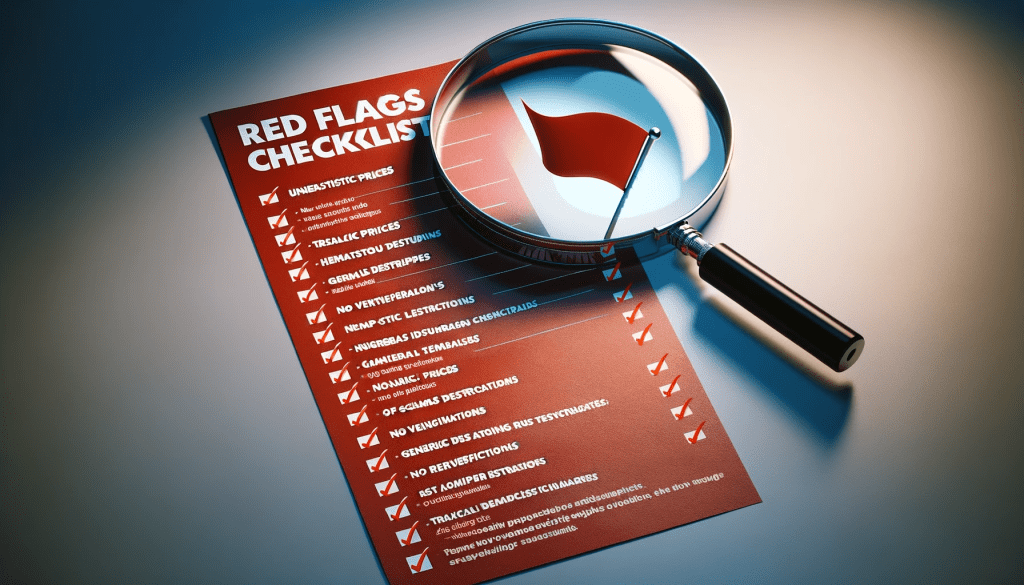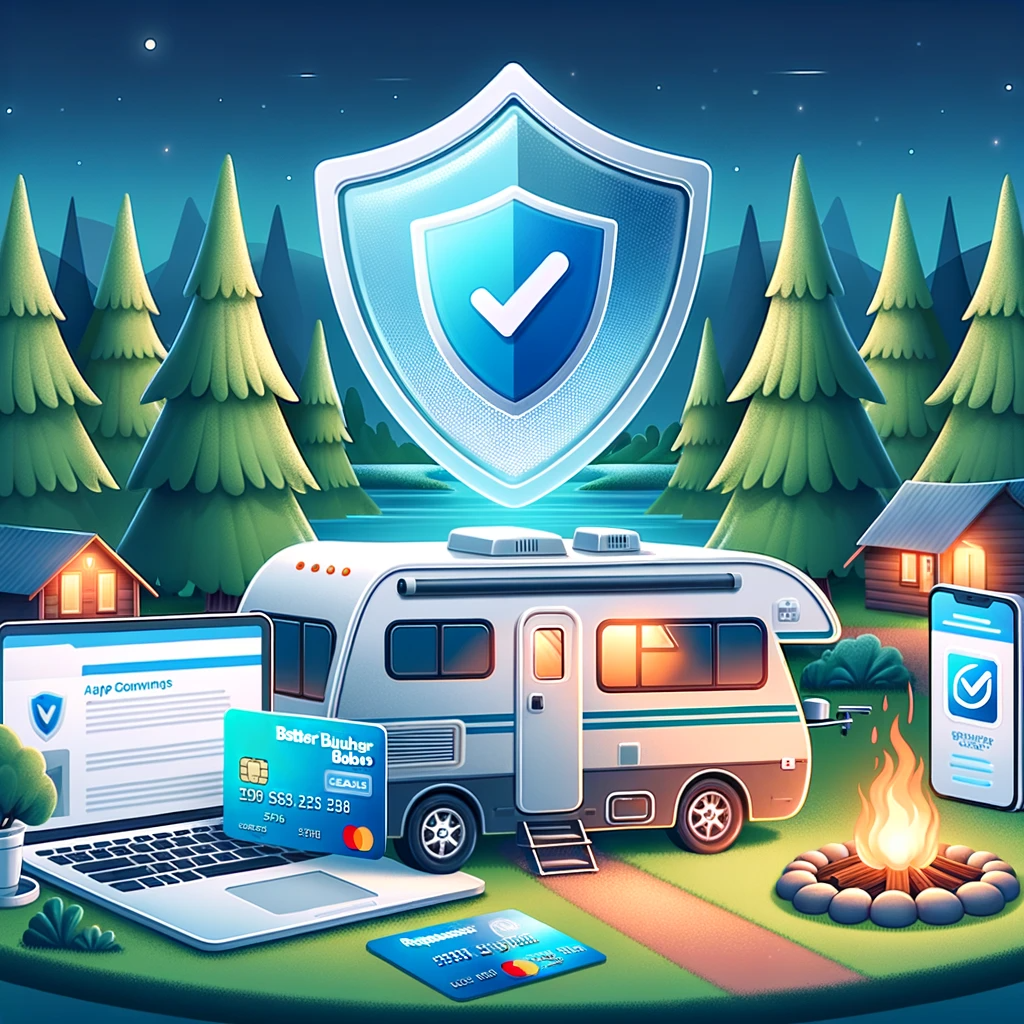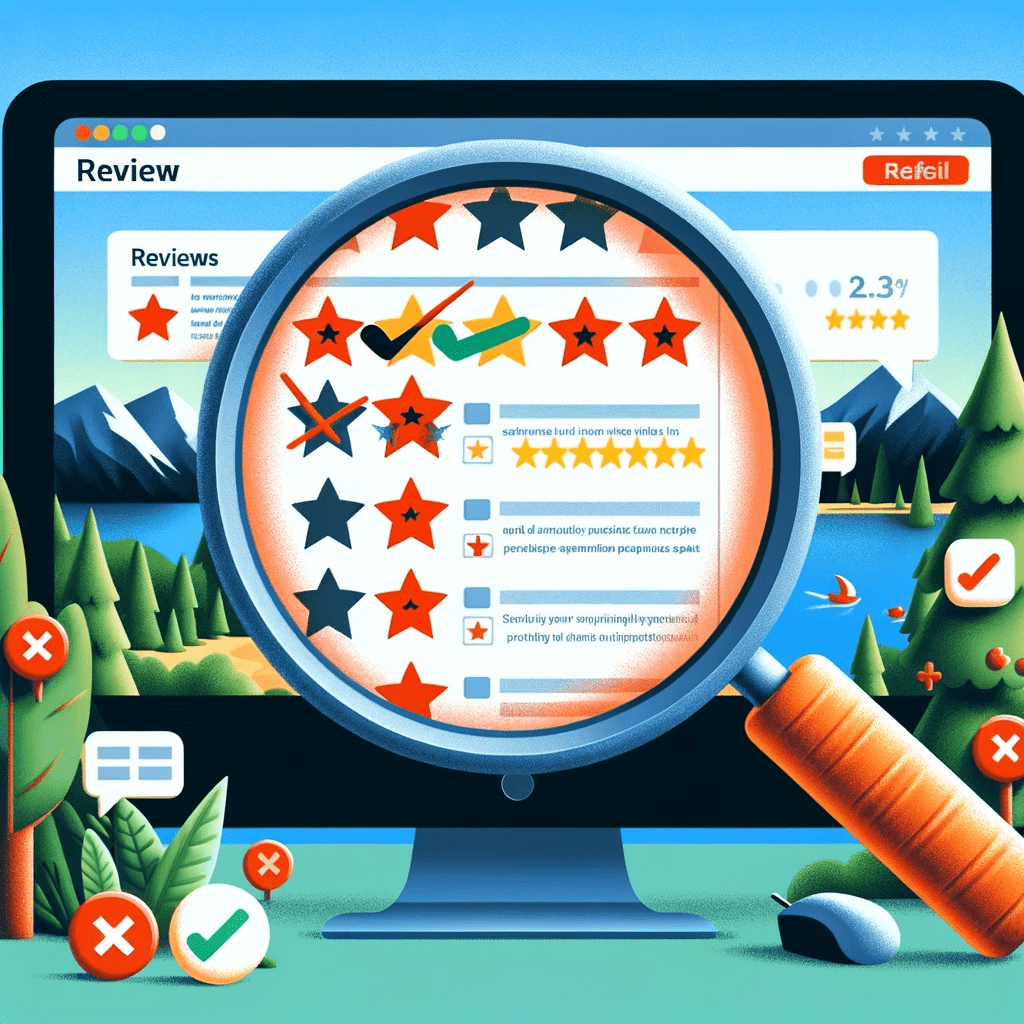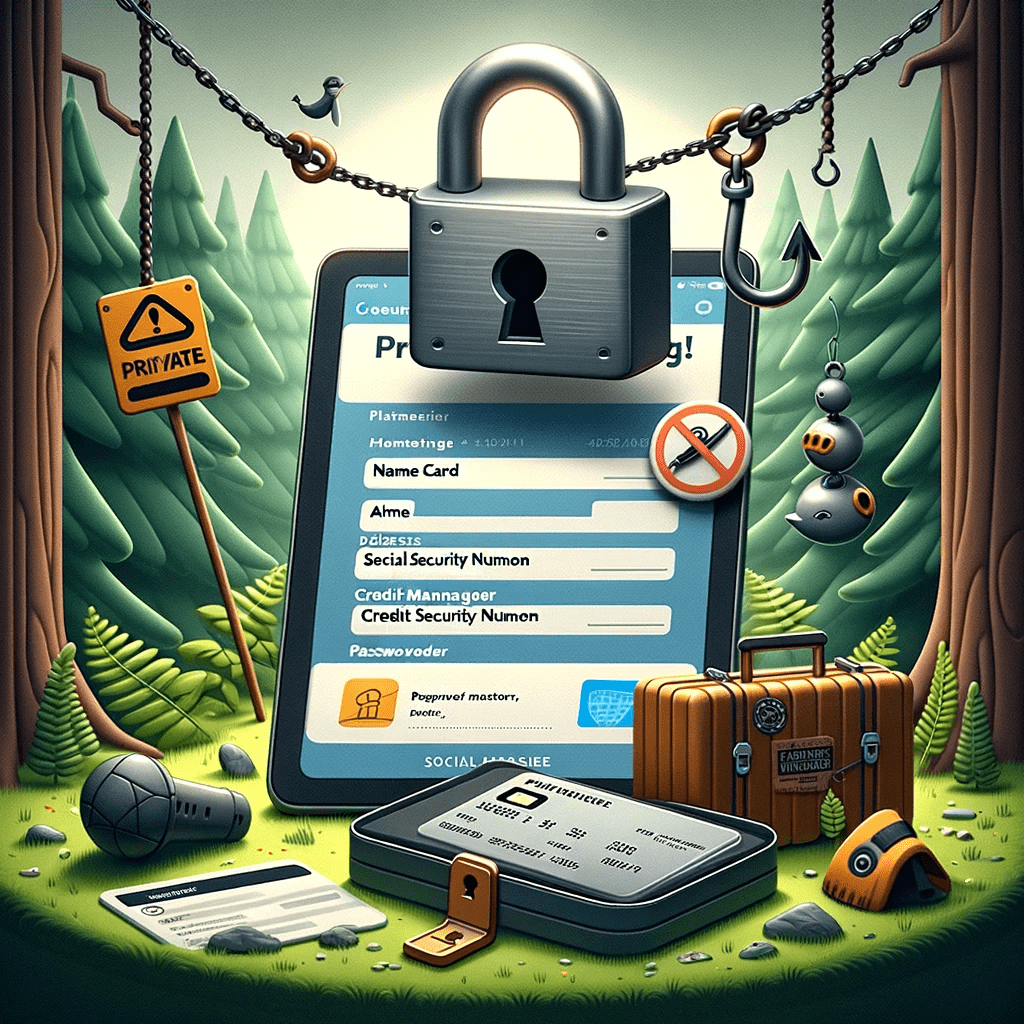The outdoorsy lifestyle, often characterized by adventurous activities, camping, hiking, and van life, has gained immense popularity over recent years. Unfortunately, alongside the growth of this lifestyle trend, there has also been a surge in outdoorsy scams. These scams prey on the adventurous spirits of those looking to explore the great outdoors, often resulting in significant monetary loss and, worse still, a tarnished enthusiasm for outdoor adventures.
Understanding the Nature of Outdoorsy Scams
Outdoor enthusiasts are increasingly being targeted by scams, which can be costly and inconvenient. Here are some of the most common types of outdoorsy scams, along with some tips on how to avoid them:
- Rental scams: Scammers may offer to rent out equipment or vehicles that they do not actually own. Victims may pay a deposit or full rent, but never receive the equipment or vehicle. To avoid this scam, always rent from a reputable company that has a good track record. Do your research and read online reviews before making a reservation.
- Fake gear: Scammers may sell counterfeit or fake outdoor gear online. This gear may be poorly made or even dangerous, and it may not meet the safety standards of genuine gear. To avoid this scam, only buy from reputable retailers. Be wary of prices that seem too good to be true.
- Travel scams: Scammers may offer to plan or book outdoor trips for victims. Victims may pay a deposit or full fee, but the trip may never happen. To avoid this scam, only book trips through reputable companies. Do your research and read online reviews before making a reservation.
- Gift card scams: Scammers may send emails or text messages offering free gift cards to outdoor retailers. Victims may be asked to provide personal information or click on a link, which may infect their computer with malware. To avoid this scam, never click on links in emails or text messages from unknown senders.
- Nonexistent adventure trips and outdoorsy experiences: Scammers may sell tickets for adventure trips or experiences that never take place. Victims may lose money on bookings and associated travel costs. To avoid this scam, only book trips through reputable companies. Do your research and read online reviews before making a reservation.
- Fraudulent outdoorsy rental services: Scammers may list nonexistent campers, RVs, or even campsites for rent. Victims may pay for rentals that they cannot use because they do not exist. To avoid this scam, only rent from a reputable company that has a good track record. Do your research and read online reviews before making a reservation.
Red Flags to Look Out For
When renting an RV, it is essential to stay vigilant and be aware of the signs of a scam. Some common red flags to look out for include:
- Prices that are too good to be true: If an RV rental seems too good to be true, it probably is. Scammers often offer discounts or free gifts to lure victims in.
- Incomplete or sketchy information: If the listing for an RV rental is missing important information, such as the owner’s contact information or the RV’s condition, it could be a scam.
- Pressure tactics: Scammers may try to pressure you into making a decision quickly. If you feel pressured to rent an RV, it is best to walk away.
- Platforms or services with poor reviews or no online presence: If an RV rental platform or service has poor reviews or no online presence, it is best to avoid it.
Verifying Information and Credentials
Before making any purchases or bookings, it is important to verify the credentials of the sellers or service providers. Here are some things you can do to verify their credentials:
- Check for legitimate physical addresses and contact information: Scammers often use fake addresses and contact information. Make sure to check the seller’s or service provider’s contact information to make sure it is legitimate.
- Read online reviews: Online reviews can be a helpful way to get an idea of other people’s experiences with a particular RV rental platform or service provider.
- Use a credit card: If you do end up making a payment, use a credit card. This will give you more protection if you are scammed.
By following these tips, you can help to protect yourself from outdoorsy scams and make informed RV rental decisions.
How to Protect Yourself from Outdoorsy Scams
here are a number of things that you can do to protect yourself from outdoorsy scams, especially when renting an RV.
- Do your research: Before you rent any equipment or vehicles, or book any outdoor trips, do your research and make sure that the company or person you are dealing with is legitimate. Read online reviews and check the company’s reputation with the Better Business Bureau.
- Be wary of deals that seem too good to be true: If an offer sounds too good to be true, it probably is. Scammers often offer discounts or free gifts to lure victims in.
- Pay with a credit card: If you do end up making a payment, use a credit card. This will give you more protection if you are scammed. Credit card companies typically offer fraud protection, which means they will reimburse you for unauthorized charges.
- Be careful what personal information you share: Scammers often try to get victims to share personal information, such as their credit card number or Social Security number. Don’t give out this information unless you are sure that you are dealing with a legitimate company.
- Use reputable websites and apps: When booking outdoor trips or renting equipment, use reputable websites and apps that have good reviews.
- Trust your gut: If something doesn’t feel right, it probably isn’t. Don’t be afraid to walk away from a deal if you have any doubts.
Additional tips for renting an RV:
- Ensure reliable transactions: When renting an RV, it is important to ensure that your transactions are reliable. This means using secure methods of payment that offer buyer protection, like credit cards or verified online payment systems. Avoid wire transfers or other untraceable methods.
- Use reputable platforms: It is also important to use reputable platforms when renting an RV. These platforms will typically have policies in place to protect their users from scams. Research and check the authenticity of any platform or seller before purchasing.
- Ask questions: If you have any questions about the RV rental, don’t hesitate to ask the seller or platform. A legitimate company will be happy to answer your questions and provide you with all the information you need.
- Inspect the RV: Before you finalize the rental, make sure to inspect the RV carefully. Look for any damage or defects. If you see anything that concerns you, be sure to document it.
By following these tips, you can help to protect yourself from outdoorsy scams and make safe RV rentals.
How to Spot Fake Reviews of Outdoorsy Products and Services
Outdoor gear and services are big business, and with that comes the opportunity for scammers to create fake reviews to boost their products or services. Here are some tips on how to spot fake reviews:
- Look for reviews that are too good to be true. If a product or service has a lot of five-star reviews, but they all sound the same, that’s a red flag. Real reviews are often more mixed, with some positive and some negative feedback.
- Check the reviewer’s profile. Look for reviewers who have only written a few reviews, or who only write positive reviews. These are often fake accounts created by scammers.
- Look for reviews that are grammatically incorrect or poorly written. Scammers often don’t take the time to write quality reviews, so their reviews may have errors.
- Look for reviews that are posted on the same day or within a short period of time. This is a common tactic used by scammers to inflate their ratings.
- Use a review verification service. There are a number of websites that can help you verify the authenticity of reviews.
- Read the reviews carefully. Don’t just look at the star rating. Read the actual reviews and see what people are saying about the product or service.
- Be skeptical of reviews that are all positive. No product or service is perfect, so if you see a product with only positive reviews, it’s probably a fake.
- Trust your gut. If something doesn’t seem right, it probably isn’t. If you have any doubts about a review, it’s best to err on the side of caution and avoid the product or service.
By following these tips, you can help to spot fake reviews and make informed decisions about outdoor gear and services.
How to Protect Your Personal Information
When you rent outdoorsy gear or book outdoor trips, you may be asked to provide personal information, such as your name, address, credit card number, and Social Security number. This information can be used by scammers to commit identity theft or other crimes. Here are some tips on how to protect your personal information:
- Only provide personal information when necessary. Don’t give out your personal information unless you are sure that you are dealing with a legitimate company.
- Be wary of companies that ask for more personal information than you think is necessary. For example, if you are renting a tent, there is no reason why a company should need your Social Security number.
- Use a credit card instead of a debit card. Credit cards offer more fraud protection than debit cards.
- Be careful about what websites you enter your personal information on. Only enter your personal information on secure websites.
- Keep an eye on your credit report for any unauthorized activity. If you see any suspicious activity, report it to the credit bureaus immediately.
- Use a password manager to keep track of your passwords. This will help you to create strong passwords and keep them safe.
- Be careful about what information you share on social media. Scammers can use information that you share on social media to target you.
- Be aware of phishing scams. Phishing scams are emails or text messages that appear to be from a legitimate company, but are actually from scammers. These emails or text messages may ask you to provide personal information or click on a link that will take you to a fake website.
By following these tips, you can help to protect your personal information when renting outdoorsy gear or booking outdoor trips.
Tips for Staying Safe Outdoors
- Plan your trip carefully. This includes knowing the area you will be visiting, the weather forecast, and the gear you will need.
- Let someone know where you are going and when you expect to be back. This will help people know where to look for you if you get lost or injured.
- Be prepared for the weather. Check the forecast before you go and dress appropriately.
- Bring the necessary gear. This includes a map and compass, a first-aid kit, and plenty of food and water.
- Be aware of your surroundings. This includes watching out for wildlife, staying on trails, and avoiding dangerous areas.
- Take breaks. This is especially important if you are hiking or backpacking.
- Listen to your body. If you are feeling tired, sore, or dizzy, take a break or turn back.
- Don’t be afraid to ask for help. If you get lost or injured, don’t hesitate to ask for help from other hikers, park rangers, or emergency services.
By following these tips, you can help to stay safe outdoors and enjoy your adventures.
How to Deal with Unexpected Problems
Even the most well-planned outdoor adventures can have unexpected problems. Here are some tips on how to deal with them:
- Stay calm. It’s easy to panic when things go wrong, but it’s important to stay calm and think clearly.
- Assess the situation. What is the problem? How serious is it? What are your options?
- Take action. Once you have assessed the situation, take action to solve the problem. If you need help, don’t hesitate to ask for it.
- Learn from your experience. Once the problem is resolved, take some time to reflect on what happened. What could you have done differently to prevent the problem? What did you learn from the experience?
Here are some specific tips for dealing with common unexpected problems:
- Getting lost: If you get lost, stay calm and don’t panic. Try to retrace your steps or find a landmark that you recognize. If you can’t find your way back, stay put and wait for help.
- Getting injured: If you get injured, first assess the severity of the injury. If it is serious, call for help immediately. If it is not serious, take steps to treat the injury and make yourself comfortable.
- Running out of food or water: If you run out of food or water, it is important to conserve what you have. Look for food and water sources in the area. If you cannot find any, you may need to signal for help.
- Getting caught in bad weather: If you get caught in bad weather, find shelter and stay warm. If you cannot find shelter, try to stay dry and avoid exposure to the elements.
By following these tips, you can help to deal with unexpected problems that arise during an outdoor adventure.
How to Get Help If You Are Injured or Lost
If you are injured or lost during an outdoor adventure, it is important to get help as soon as possible. Here are some tips:
- Stay calm. It’s easy to panic when things go wrong, but it’s important to stay calm and think clearly.
- Assess the situation. What is the problem? How serious is it? What are your options?
- Signal for help. If you are in an area where people are likely to be, wave your arms or shout for help. You can also use a mirror to reflect sunlight or a whistle to make a loud noise.
- Use your phone. If you have a cell phone, call 911 or the local emergency number.
- Use a personal locator beacon (PLB). A PLB is a small device that sends a distress signal to rescuers.
- Stay put. If you are injured, it is important to stay put and wait for help. Moving around could make your injury worse.
- Let someone know where you are going and when you expect to be back. This will help people know where to look for you if you get lost or injured.
- Bring a map and compass. This will help you find your way back if you get lost.
- Bring a first-aid kit. This will help you treat minor injuries.
- Be prepared for the weather. Check the forecast before you go and dress appropriately.
- Tell someone if you are going to change your plans. If you are going to be late or you are going to a different location, let someone know.
By following these tips, you can help to ensure that you get help if you are injured or lost during an outdoor adventure.

What to Do if You’ve Been Scammed or Had a Problem
If you’ve been scammed or had a problem with a rental, there are a few things you can do to get help.
1. Report the scam to local law enforcement. This will help them to track down the scammers and bring them to justice.
2. Contact your bank. If you paid for the rental with a credit card, your bank may be able to help you dispute the charge.
3. Contact the platform through which the transaction occurred. This platform may have policies in place to help you resolve the issue.
4. List your complaint with trusted platforms like the BBB. This will help other potential renters to avoid the same problem.
Here are some additional tips:
- Keep detailed records of all communications with the scammer or rental company. This includes emails, text messages, and any other documentation.
- Take screenshots of any relevant websites or social media pages. This will help you to provide evidence of the scam or problems with the rental.
- Be patient. It may take some time to resolve the issue, but don’t give up.
By following these steps, you can help to protect yourself from scams and get the help you need if you’ve been scammed or disgruntled with a rental.
Understanding Complaints Against Outdoorsy Inc.
A Commitment to Customer Satisfaction
Outdoorsy Inc., a company based in Austin, Texas, that specializes in RV rentals, has received an A+ rating from the Better Business Bureau (BBB). While the company has received some complaints, it has consistently demonstrated a commitment to addressing areas of concern and enhancing its customer service experience.
Addressing Billing Concerns
One of the most common complaints against Outdoorsy Inc. concerns billing disputes. Some customers have reported being charged for unexpected items. In these cases, Outdoorsy Inc. has been willing to work with customers to resolve the issue.
To help avoid billing disputes, it is important to have a clear understanding of your contract with Outdoorsy Inc. This includes knowing what is included in the rental price and what additional fees may apply. It is also important to read the contract carefully before signing it.
If you do have a billing dispute, be sure to contact Outdoorsy Inc. as soon as possible. The company is more likely to be able to resolve the issue if you contact them promptly.
Enhancing Product and Service Quality
Other customers have reported dissatisfaction with the products/services provided by Outdoorsy Inc. Some customers have reported issues with the quality and maintenance of the rented RVs. In these cases, Outdoorsy Inc. has taken steps to improve the quality of its RVs and the maintenance process. For example, the company has implemented a new inspection process that ensures that all RVs are in good condition before they are rented out.
Takeaway
While Outdoorsy Inc. has received some complaints, the company has taken steps to address these complaints and improve its customer service. The company is committed to providing its customers with a positive rental experience.
Conclusion
Outdoor scams can be a major setback for enthusiasts. However, by understanding the common types of scams, knowing how to identify them, and taking proactive measures, you can protect yourself and continue to enjoy your outdoor adventures.
Here are some key takeaways from this article:
- Be aware of the common types of outdoorsy scams. These include rental scams, fake gear scams, and travel scams.
- Know how to identify these scams. Look for red flags such as prices that are too good to be true, incomplete or sketchy information, and pressure tactics.
- Take proactive measures to protect yourself. Use reputable platforms, ensure reliable transactions, and be careful what personal information you share.
- Be aware of complaints against companies like Outdoorsy Inc. While this company does offer substantial options for RV rentals, it is important to be aware of the complaints and make informed decisions.
Staying safe doesn’t mean stifling your adventurous spirit. It means being smart and informed so you can continue exploring with peace of mind.

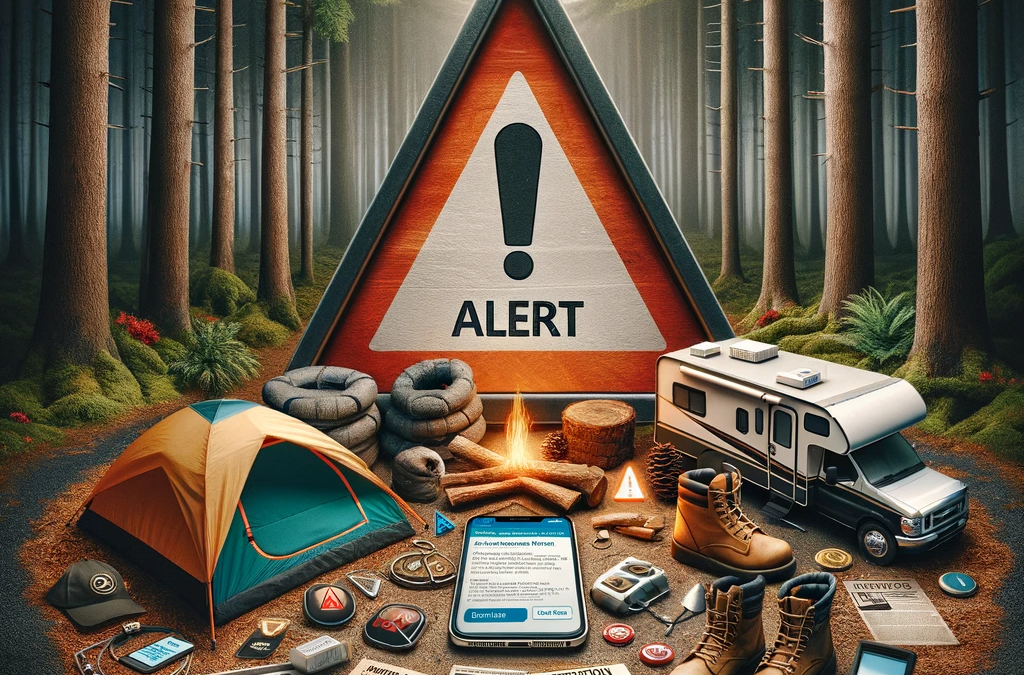
 Image by
Image by 